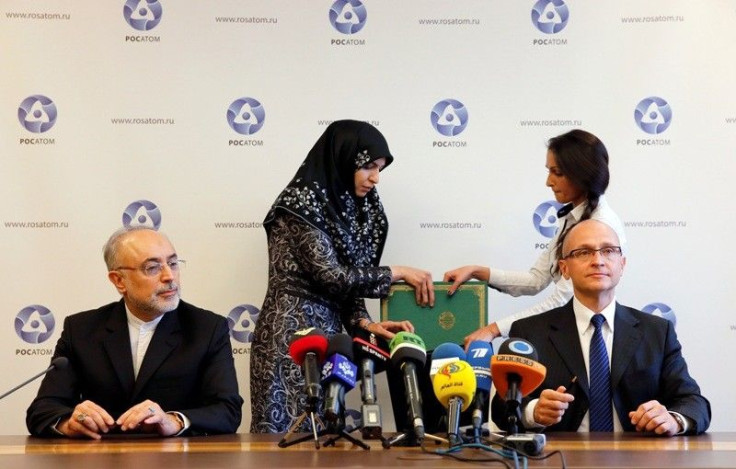US And Iran Clinch Tentative Deal In Nuclear Talks: Iran Advised To Export Fissile Material To Russia

The nuclear talks between Iran and the United States have reportedly clinched a primary deal. The new formula is expected to reduce Tehran's ability to make nuclear arms and requires Iran to ship the processed uranium to Russia.
However, Iran denied the news of any preliminary deal. A report by the Associated Press had quoted a few diplomats closer to the negotiators, who said a marginal breakthrough is in sight, after Iran agreed for drawing up a catalogue, for the first time, despite many pending disputes. The preliminary deal looks like a milestone as the procsss of making a to-do list was difficult so far, because of wider gaps between the two sides. That hurdle is over now, reports Haaretz. The areas of differences will come into focus at the next round of Iran and six power talks scheduled on Jan 15 at Geneva.
Positive Sign
Iran had been denying that it wants to build nuclear arms. Its negotiations with the U.S., Russia, China, Britain, France and Germany had been around cuts in the nuclear programme to end the biting sanctions. The talks have been extended twice as stubborn disagreements cropped up between the two sides. Iran's new flexibility was also evident in the statement made by Iranian President Hassan Rouhani, who said on Sunday that the nuclear negotiations with world powers are a matter of "heart," and not about centrifuges.
Addressing an economic conference in Tehran, Rouhani said Iran is open to wide-ranging negotiations with the six-nation group. He noted that stopping some enrichment that Iran does not need will not mean that it compromised on principles and its cause. Rouhani said the Iranian cause is not linked to a few centrifuges but "connected to our heart and willpower," reported The Guardian.
Enrichment Issue
Uranium enrichment was the main bone of contention that impeded the progress of talks. The U.S. wants caps on the the core material for creating reactor fuel and the fissile core of nuclear arms. As a way out, mainly to constrain Iran's bomb-making capacity, the U.S. proposed that Iran should export much of its stockpile of enriched uranium. But that formula was rejected by Iran. Both sides also differed on how much enriched uranium stockpile should move out of Iran. Since Iran already enjoys the capacity to make many bombs, Washington wants substantial cuts by Iran to arrive at a level that is below the threshold mark.
Diplomats confided that the newly created catalogue would map out how much fissile material can be pulled out of Iran. However, Iran's Foreign Ministry Spokesperson Marzieh Afkham said no agreement has been reached "on any of the issues." She described such claims as "politically-motivated" and aimed at undermining the talks. Issues eluding an agreement include the size of Iran's future enrichment output. The U.S. wants it be cut in half, leaving Tehran with 4,500 centrifuges for enriching uranium, or less, in case it replaces them with advanced models. But Tehran will only reduce 20 percent or 8,000 of the machines, according to the diplomats.
Another issue is Iran's Fordo underground enrichment site and the newly built Arak nuclear reactor. The U.S. and its five allies want Iran to repurpose Fordo to make it a non-enrichment reactor as it is impervious to a military attack from the air. Nevertheless, the diplomats said they are hopeful that negotiators can reach a rough deal by March and stitch a final deal by June 30.





















